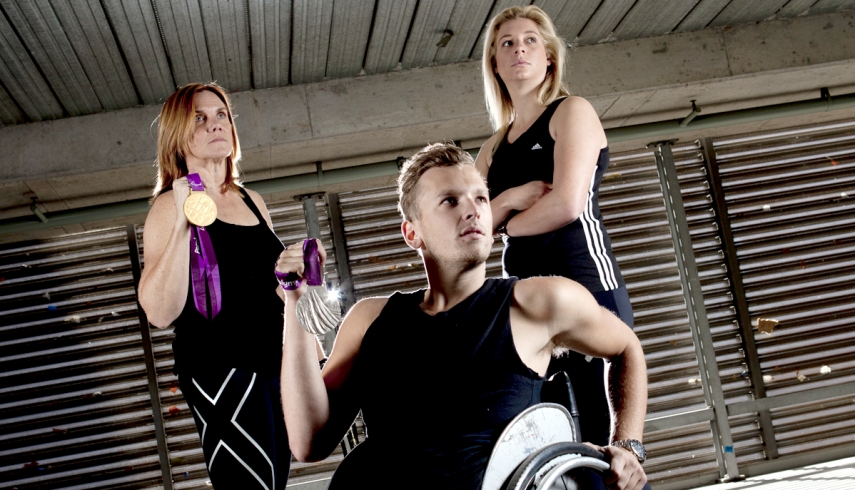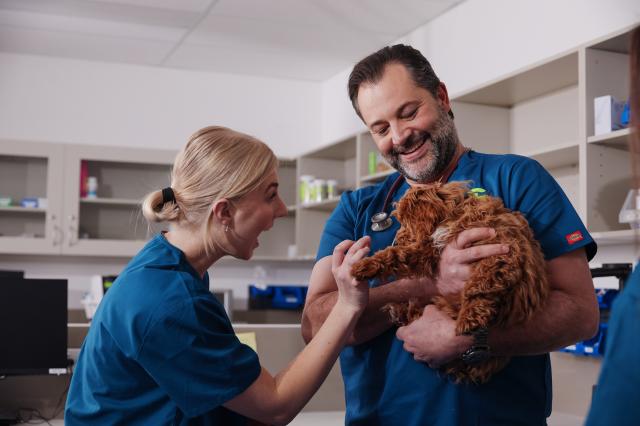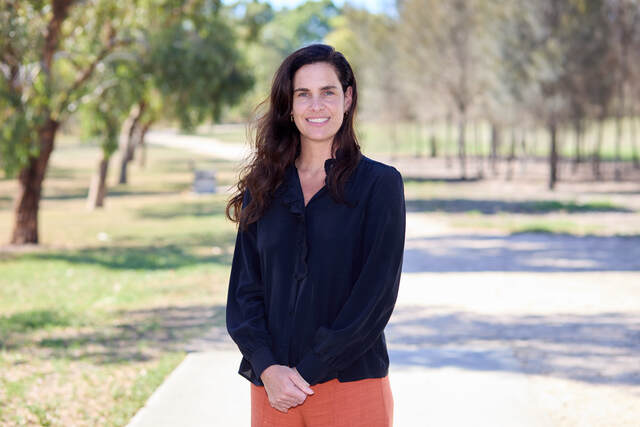They shone as beacons of inspiration at the London Paralympics, but what comes next for Australia’s elite disabled athletes? By Daniel Paproth and Stephen A Russell
Just three months ago, Australia’s elite disabled athletes were rubbing shoulders with rock stars and being treated like celebrities as the London Paralympics enjoyed unprecedented public attention. The Australian Paralympic team finished fifth on the world leaderboard, winning 85 medals – 32 gold, 23 silver and 30 bronze. The haul dwarfed that of the Olympic team’s total (35 medals) and quadrupled its gold tally (seven medals).
But now, after basking in the warm glow of the world spotlight, they’ve come home to their everyday lives.
When we meet, four members of the team have reconvened to talk about their experiences. Or at least, three of the athletes have made it – Ahmed Kelly is still struggling to get here, caught up somewhere in Melbourne’s morning traffic snarl.
Wheelchair basketball star Dylan Alcott, 21, who was born with a spinal tumour, checks his watch repeatedly, knowing he’ll have to dash off soon to deliver one of his rousing motivational talks at nearby Etihad Stadium. Far from being annoyed, the consummate joker entertains us all with details of his post-Paralympics training regime.
“I feel sorry for my liver,” he says, laughing. “I’ve been a full-time drinker for the last few weeks.”
He says it is strange being back home after training for two consecutive Paralympic Games. “You put so much time and effort into it and then all of a sudden, with the click of your fingers, you’ve won a silver medal and what do you do now? I’m waking up every day and I have a free schedule and I have no idea what to do with my life.”
Clutching the silver medal he secured in London, Alcott admits he had been hoping to retain the Rollers’ gold medal from Beijing, but the Australian team was pipped at the post by Canada. Still he’s hanging on to the afterglow of his new-found popularity, both on and off the court, by hanging out regularly with fellow Melbourne-based athletes.
“It was like being a proper celebrity,” he says of his time in London. “People legitimately knew who you were, or they were interested to know. That stuff’s pretty unheard of at the Paralympics, so it was an awesome experience.”
He was blown away by the scale of the Paralympics closing ceremony, too. “We had Jay-Z, Rihanna and Coldplay,” he marvels. “I was getting a bit excited when I saw Rihanna because I’ve got the biggest crush on her. I was about five metres away, I was about to throw myself at her, metal and all.”
A charismatic presence with a cheeky glint in his eye, Alcott’s not sure if he’s headed to Rio in 2016, but he’s already working the rounds as a motivational speaker, and is shooting for a career in television.
“If there’s a 12-year-old kid sitting at home, having a sh*t time at school and he puts on The Project and there’s a guy in a wheelchair not talking about being in a wheelchair, I reckon that would change how we are perceived in the community.”
If he doesn’t compete at Rio, Alcott at least hopes to be reporting from there. And he’d like to see some big sponsorship money heading the athletes’ way.
“Unfortunately we don’t get the same amount of money as our able-bodied counterparts, but by 2020 I imagine it will pretty much be a full-time professional gig,” he says. “If we keep building on what happened in London, it’s only going to get better and better.”
Katy Parrish, 21, who has cerebral palsy, competed in track and field events in London. Despite missing out on medals, the positive experience of competing at two consecutive Paralympic Games inspires her to push harder as she prepares for a third assault, at Rio 2016.
After much-needed downtime immediately following the Games, she’s back at training and has her sights set on the 2013 International Paralympic Committee Athletics World Championships in Lyon, France, and Glasgow’s Commonwealth Games in 2014.
“I’ve had a good break, and now I’m just basically getting back into things, trying to get back to reality, get a job and decide if I want to go to uni,” she says.
Parrish was 17 when she competed in Beijing, and noticed a huge improvement in public perception in London. She hopes that recognition will continue to improve. “Usually a year around the Paralympics is when everyone wants to know us,” she says. “In between, you wouldn’t know who we were walking down the street. We’re just a disabled person walking or rolling around.
“In London, it was definitely a more emotional Games, and the Brits loved us. A lot of people came to see us as athletes – not the guy with one leg running, or the blind people.”
Parrish has no shortage of ambition. “It’s definitely harder for us, but that makes it more fun because we feel like we’ve achieved more,” she says. “Olympians overcome injuries, but we overcome life injuries. It is tough, but that’s why we’re so much more passionate.”
Carol Cooke, 51, brought home a gold medal in cycling, beating 13 men and four women in the process. Her success was the realisation of a 32-year dream.
Born in Toronto, Canada, Cooke was set to represent her country in swimming at the Moscow Olympics in 1980 until the team boycotted the Games to protest against the 1979 Soviet invasion of Afghanistan.
She moved to Australia in 1995 and was diagnosed with multiple sclerosis in 1998. A doctor told her to return home and “get her affairs in order” before she became confined to a wheelchair.
Undeterred, she pursued rowing and just missed out on the Beijing Paralympics in 2008. But it was in road cycling that she finally achieved her dream, winning gold in the mixed T1-2 time-trial event in London.
Like Alcott, she has been delivering motivational speeches since returning from London. “I ask people if they consider this gold medal to be success,” she says, holding hers aloft. “They all say ‘Yeah’ but I tell them, ‘No, the gold medal isn’t success; it’s the icing on the cake’. For me, the success was the fact that I made it to London after so long.”
Cooke noticed the positive reception as soon as she touched down in London, where the billboards featured Paralympic athletes. “The Olympic ones had all been taken down; it was all about the Paralympics,” she says.
She hopes the games will leave an enduring legacy. “There are very few elite athletes with a disability who have any kind of sponsorship,” she says. “Let’s hope it changes, because we’re not just a bunch of poor disabled athletes going out to try their hand at something. We all work pretty damn hard to get to where we are.”
While there appeared to be disharmony among some Aussie Olympians in London, the camaraderie among Paralympians was striking. “It didn’t matter where you finished, everyone congratulated everybody on a job well done,’’ says Cooke. ‘‘I thought I knew what disability was all about before I went over there, but I had no idea.”
Cooke’s reminiscences are cut short as Ahmed Kelly rushes in, an exuberant bundle of energy. Born without arms or legs, he spent his first seven years in a Baghdad orphanage before he and his brother, Emmanuel, were adopted by Moira Kelly of the Children First Foundation in 1998.
In London he competed in the final of the men’s 50-metre SB3 breaststroke and finished fourth.
Unlike many Paralympian athletes, Kelly, 20, has already secured the support of high-profile sponsors, including Qantas and Samsung, the significance of which is not lost on him. “To have them on board, representing themselves through a Paralympian, is just amazing,” he says.
London was his first attempt at the Paralympics, and it’s taken him a while to settle back into everyday life afterwards. He’s finishing off his year 12 studies, having taken an extended break for the Paralympics. Like Alcott, he’s been tickled by the idea of a career in journalism.
“The ABC did a really good job covering the games; the next goal is to allow the Australian public to see the Paralympians in trials,” he says. “Yes, it’s good to watch the Paralympics, but that’s once every four years. Now let’s try and follow them throughout. If I can help promote Paralympic sport in any way, I will do my best.”
London was his biggest challenge to date, but there’s more to come. “The fact that I made it just shows what hard work, determination and focus can really do,” he says. “I’ve been blessed with wonderful opportunities and I’ve really embraced them.
“Mum’s a doer, she doesn’t say no to anything. She’s always out there trying to help society as much as she can. You can’t help but learn from that sort of value.’’ n







